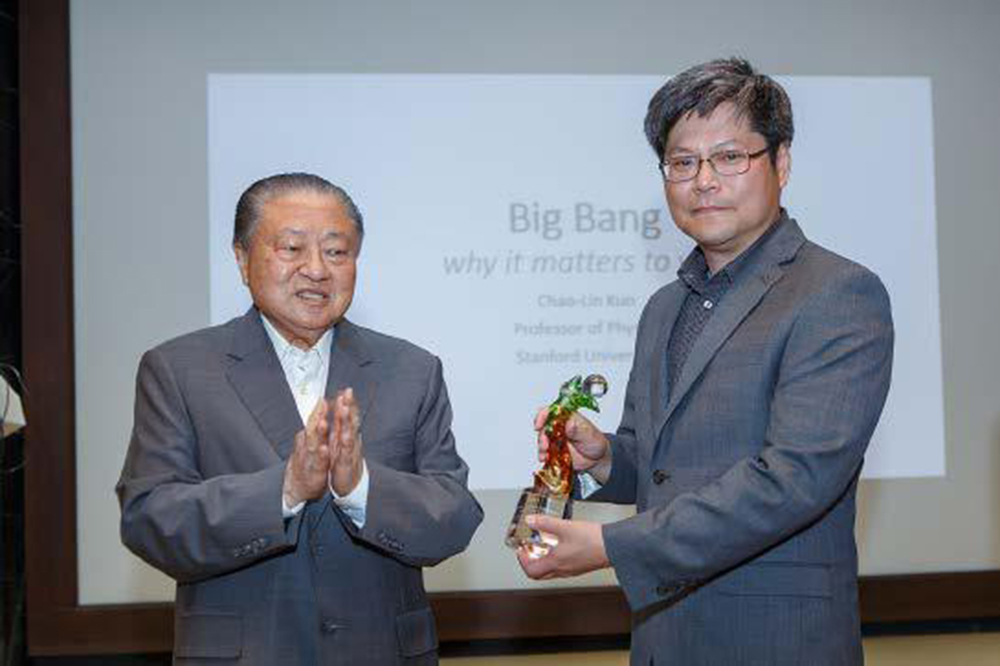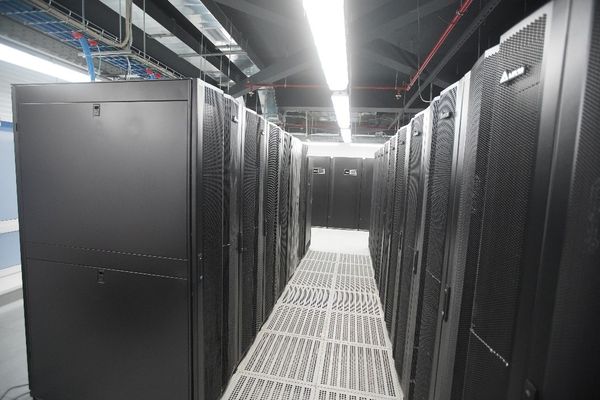Mr. Chao-Lin Kuo, Professor of Stanford University, who devotes himself to the “Big Bang” theory and who has almost confirmed the theory of “cosmic expansion”, has won the laurel of “DELTA Young Astronomer”. On June 11, Mr. Kuo received the award presented by Mr. Bruce Cheng, founder and honorary chairman of Delta Group, and made a speech with the theme of “Big Bang and You” at the Sunshine Conference Hall of Delta Sunshine Building. Nearly 100 Delta colleagues listened to his speech.
The research team of Harvard Smithsonian Center for Astrophysics in which Mr. Kuo is a member published a paper in 2014. The evidence of the early Big Bang - “Primordial Gravitational Wave” was found by making use of data from the Antarctic observatory; thus Kuo immediately became a well-known physicist in Taiwan. However, the same team published a paper in 2015 to argue that existing data still do not rule out the effect of interstellar dust and they will continue to look for other evidence. Kuo is now working with the astrophysics team of Taiwan University to set up another northern hemisphere observation base next to the Tibetan Plateau Shiquanhe Observatory, which is also an astronomical observation base established with the assistance of Mr. Bruce Cheng. It has become an important astronomical observation base in the world.

Mr. Bruce Cheng, Founder of Delta Group, presented the award of “DELTA Young Astronomer” to Mr. Chao-Lin Kuo, Professor of Stanford University
Mr. Kuo is the 12th astronomer winning the honor of “DELTA Young Astronomer”. Mr. Wing Huen Ip, academician of Academia Sinica, who is in charge of the award selection, points out that these scholars are all Stars of Tomorrow in the field of astrophysics. He is confident that someone from the current winners will have a great opportunity of winning the Nobel Prize in Physics in a few years, which shows the particularity of the award in the field of global astrophysics.















